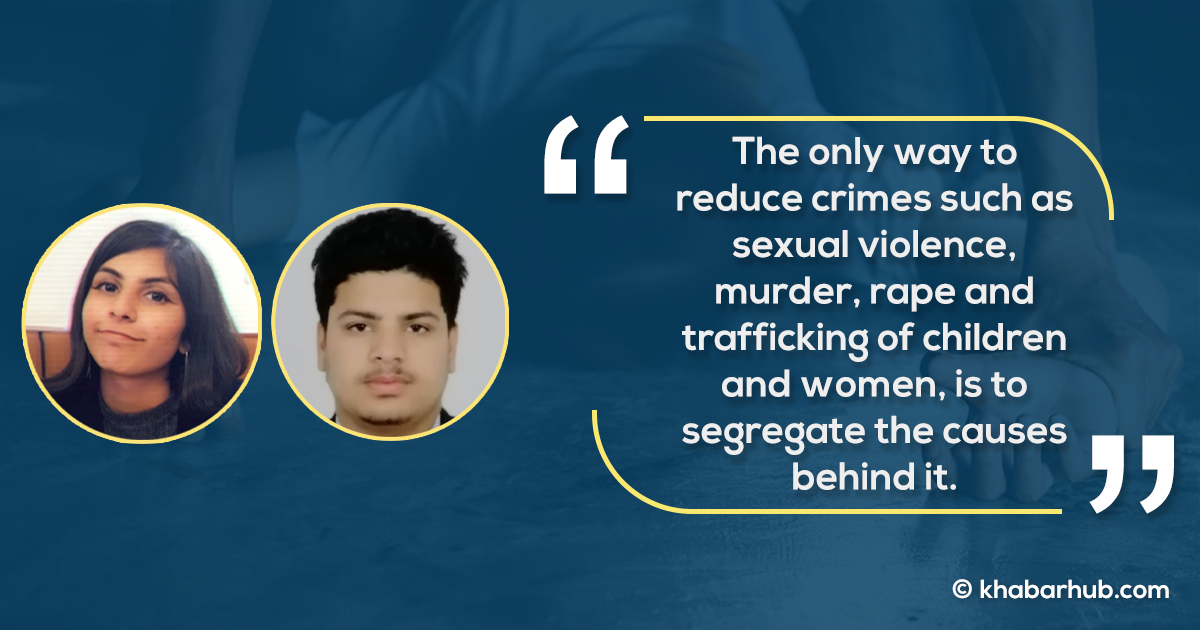Whatever the crime may be, no country has been able to conclusively say that capital punishment is a conducive hindrance. Nepal has seen more rape cases than in other normal days lately.
Many people argue that giving the death penalty to criminals or convicts will stop rape in society.
However, one of the researches carried out by Amnesty International (AI) regarding the death penalty has shown that the death penalty doesn’t deter violent crime.
Even if we look at the situation of those countries which offer the death penalty to the criminals, rape instances have not come to an end.
Punishing the offender and giving justice to the victim is the main aim of the justice system. Yet, hanging the offender and ending the case does not bear the spirit of the justice system.
If the law isn’t enforceable, it’s useless. Nepal’s Criminal Code has the provision of different types of punishment as per the nature of rape.
But, in many cases, rapists get excuses or are offered amnesty on political backup.
Rather than reducing the instances of rape, as in the case of Japan and Singapore, the introduction of capital punishment can result in a fewer number of formal reports on the crime which is not synonymous with the reduction of rape crime.
Hence, even after introducing the death penalty to the rapists, we wouldn’t be successful to stop these kinds of crimes unless the culture of offering political shelter to the rapist comes to an end.
It won’t make any kind of the desired impact on society. Rather than introducing the death penalty to rapists, we must ensure that the law is enforced properly and justice is delivered fairly.
Rather than reducing the instances of rape, as in the case of Japan and Singapore, the introduction of capital punishment can result in a fewer number of formal reports on the crime which is not synonymous with the reduction of rape crime.
It rather increases other crimes like murder, kidnapping, and other types of violence as the criminals know there is capital punishment for rape.
There will be problems with retributive justice because the state is obliged to support society’s retributive rape against those convicted of crimes such as rape; it is a slippery slope to permit the capital punishment for all crimes.
The logic behind controversy for the death sentence to the offenders of rape is that the crime that they have committed is equivalent to death.
India’s former Minister for External Affairs, Sushma Swaraj was battling death as a ‘living corpse’. Feminist activists have come out powerfully against that notion, which is connected to the belief that a women’s ‘honor’ which is connected intrinsically to her sexuality is what makes her life worth living.
Even after the assault, if the FIR is not registered then there is no speedy trial and also not even the conviction of the guilty – then deterrence is low.
In fact, countries like Norway, Austria, Switzerland, where there is no capital punishment, often have a lower rate of crime than the countries where capital punishment.
Women and her family dread that coming out for FIR can further endanger the victim and the family, as the tormentor and his family rather than confessing the crime might take to seeking revenge against the victim and her family.
The only way to reduce such crimes like sexual violence, murder, rape and trafficking of children and women, is to segregate the causes behind it.
Since this access is obscure to cohere to as many silts to take the easy way out – kill the offender, an eye for an eye. It is not justice, it is retaliation.
Such irrational measures are often used to fool the people by making them believe that the government has worked substantively against the crime.
These days, especially in social media, people have been demanding that rapists need to be hanged. But think for a bit, has it reduced the rape cases? Does it reduce rape?
Every day, the number of rape cases is increasing. Besides incidences of rape, gang rapes inside the buses or the rapes of the minors in an enclosed area are occurring so frequently that they are turning common news quite often here.
Capital punishment is concurrent with our culture of violence, that’s why it cannot be the solution for violent crimes.
Besides, it’s also against the Universal Declaration of Human Rights, the milestone document that states, everyone has a right to life.
Then, how can someone be hanged without determining other factors? No one is born criminal or rapist or murderer and kidnapper; it is the upbringing of the society and its faulty education that turns an individual to criminality.
There is no point in blaming only the offender if we cannot put equal blame on these intervening factors. Some can perform and confine this systematic ‘miseducation’ while some cannot.
The secured mode then is to tackle this imperil of ‘miseducation’ in the first place. If the death penalty is introduced to deter the crime, it might have more serious consequences in society.
As mentioned earlier, the introduction of the provision of the death penalty in the country may further worsen the situation as the rapist may further be provoked to kill the victim.
For justice for girls and women, the mindset of people needs to be changed as well.
Many people blame the victims of rape for the rape crime, it reflects patriarchal chauvinism.
The notion of victim-blaming is at a high rate. In addition, statements made by political leaders also show that women are responsible for being raped.
With these kinds of ideas, beliefs remaining in the society we can’t think of women coming forward and filing the case against the rapist.
Women and her family dread that coming out for FIR can further endanger the victim and the family, as the tormentor and his family rather than confessing the crime might take to seeking revenge against the victim and her family.
So, whether the punishment is the death penalty or not if we can’t overcome these kinds of problems that blame the women for rape we can’t solve this.
Until and unless these kinds of problems are situated in society we can’t imagine women getting justice. It seems necessary to bring change but that change must be made in the mindset of the people not in the punishment.
Moreover, the provision of giving statements virtually must be established so that it will be easy for women to deal with the problem as bringing them in the court will only add the burden upon themselves.
Even after the assault, if the FIR is not registered then there is no speedy trial and also not even the conviction of the guilty – then deterrence is low.
Rape is an emanation of a patriarchal and feudal society. Our society has a sense of hatred and is a bias towards women, and this is expressed in their objectification and portrayal.
With capital punishment now dropping before every rapist, torture and rape will become more ghastly since a living victim is a living witness for the criminal deviant and the rapist will now go to any length to get rid of the victim’s body, to most effectively cover up their tint.
And, finally, the rapist will do even worse; they will torture and abuse the victim and the witness in a brutal way.
Looking at the legal procedure, it’s apparent that it has been difficult for women to enter court even for the hearing related to these criminal activities. Fast track courts must be established to unravel such crimes.
Moreover, the provision of giving statements virtually must be established so that it will be easy for women to deal with the problem as bringing them in the court will only add the burden upon themselves.
Change is required in the legal proceeding, not in the punishment.
(The writers are students of BA.LLB. Second Year at the Kathmandu School of Law)
(Views expressed in this article are the author’s own and do not necessarily reflect the stance of Khabarhub)








Comment